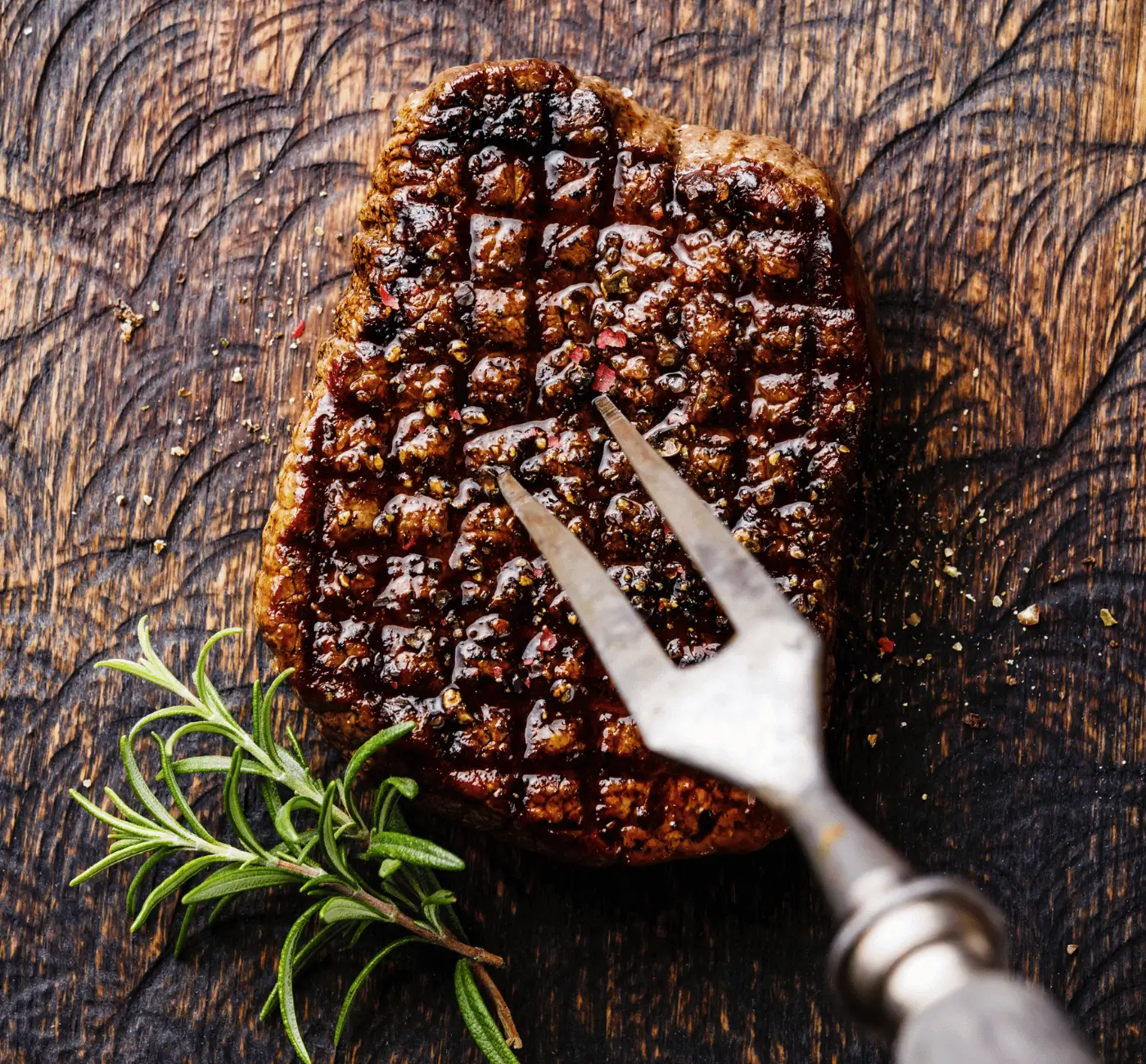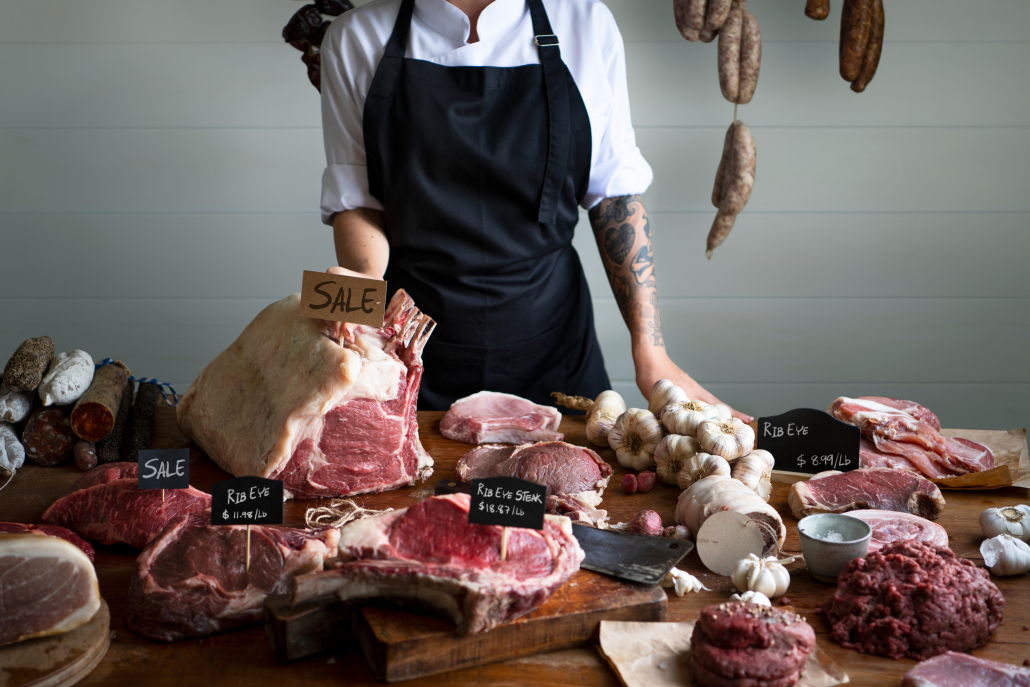
Creating a well-formulated keto shopping list is a key to jump-starting and sustaining your keto lifestyle. With the exploding popularity of keto, there are many different perspectives on the optimal keto grocery list. There are also a ton of processed packaged foods labeled “keto” and “keto-friendly” that are best avoided due to plant toxins, industrial oils, and artificial sweeteners.
In light of these concerns, we’ve created our shopping list as a compass to guide you towards the foods that are most nourishing for your body while helping you avoid other so-called keto-friendly foods that aren’t actually as friendly as many believe.
We based our list on the most nutrient-dense and healthiest foods on earth.
When considering what goes on your keto grocery list, you first have to consider what kind of ketogenic diet you’re shopping for.
There are numerous variations of the keto diet. Popular types of keto include:
The carnivore keto diet is inspired by research revealing that for most of the 2 million years of human evolution, our caveman ancestors ate mostly meat [3].
Recent research from Harvard suggests that “Contrary to common expectations, adults consuming a carnivore diet experienced few adverse effects and instead reported health benefits and high satisfaction” [4].
The many benefits of a carnivore keto diet can be attributed to:
These links will help you dive deeper into carnivore diet meal plans and a complete carnivore diet food list
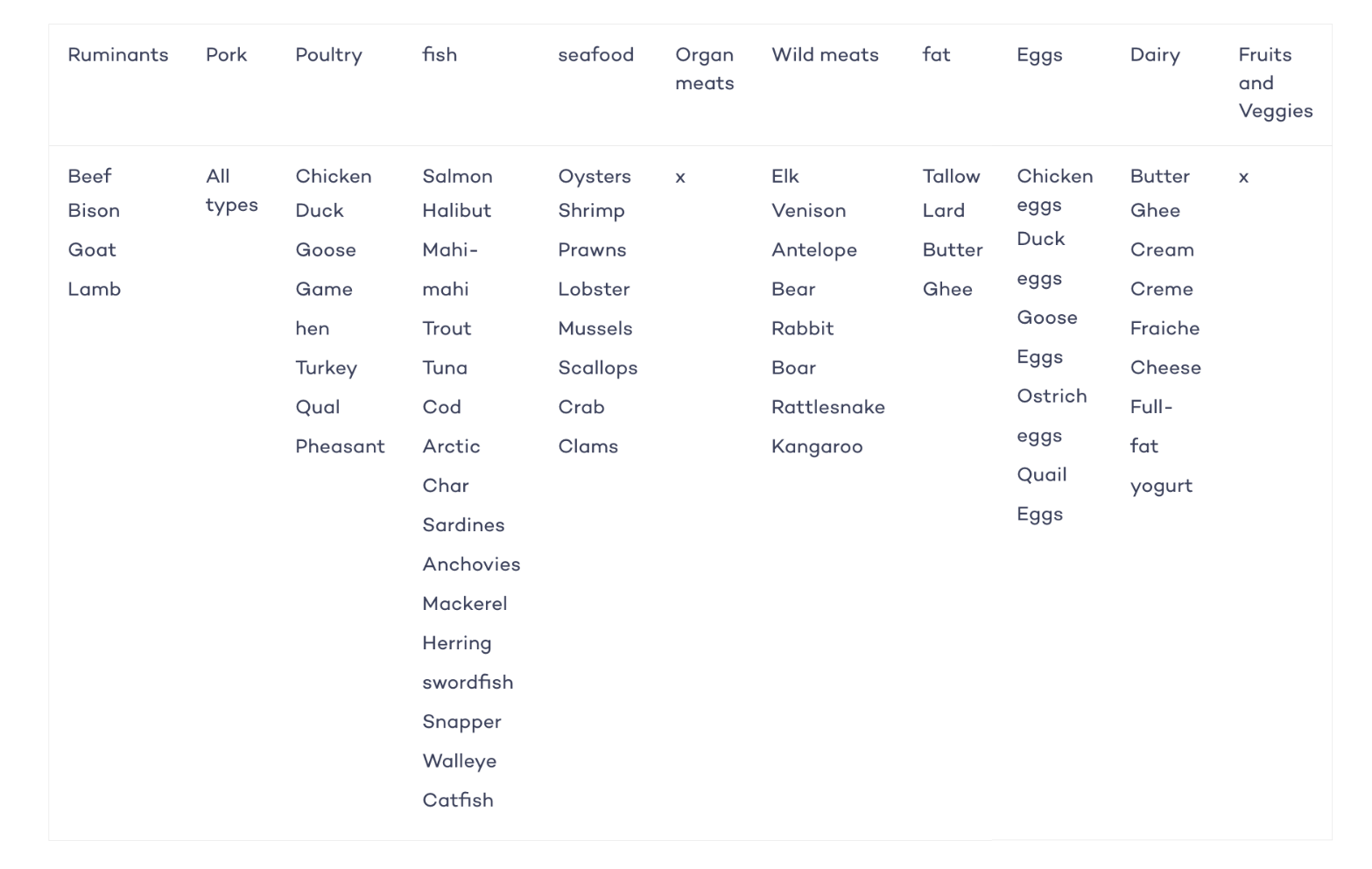
It’s important to note that fatty ruminant meats like ribeye steak are the foundation of carnivore keto. A carnivore keto shopping list could essentially consist of only ribeye, salt, and water, which is all you actually need to thrive. In fact, there’s a paired-down carnivore diet called the lion diet that follows these guidelines.
Worried about vitamin C, don’t be–click here to learn how fresh meat provides more than adequate vitamin C intake.
Dr. Kiltz’s own BEBBIS Plan expands slightly on the carnivore diet. It allows for significant wiggle room/cheat days with french fries fried in duck fat (tallow or lard) dipped in homemade blue cheese butter, mayo, or sour cream. There’s even Dr. Kiltz’s Keto Ice Cream for dessert. For many people, these additions make the diet more enjoyable and therefore sustainable.
Ruminant meats provide an abundance of healthy fats, complete proteins and are loaded with essential B vitamins, zinc, selenium, and numerous nutrients found only in meat:
Though conventional ruminant meats provide a solid and affordable foundation for most keto dieters, grass-fed and pastured steak on keto offer significantly higher levels of Vitamin A and Vitamin E. Together, these nutrients are critical to energy production and combating lipid peroxidation.
Go a step further and extend the benefits of eating meat to the environment by choosing regeneratively farmed meat that actually sequesters carbon.
High-quality beef organ meat supplements from desiccated grass-fed organs can provide an incredible abundance of bioavailable nutrients that you get on a nose-to-tail diet. Supplements also save your the hassle of sourcing and cooking fresh organ meats.
Since keto is a low-carb, high-fat, moderate-protein diet, it’s helpful to add the fattiest cuts of steak to your grocery list.
This list ranks some popular cuts of steak based on their fat to protein ratio. Remember that you can always add a couple of tablespoons of healthy keto fats to any meat to boost your fat intake.
Nutrition Info per 4 oz.
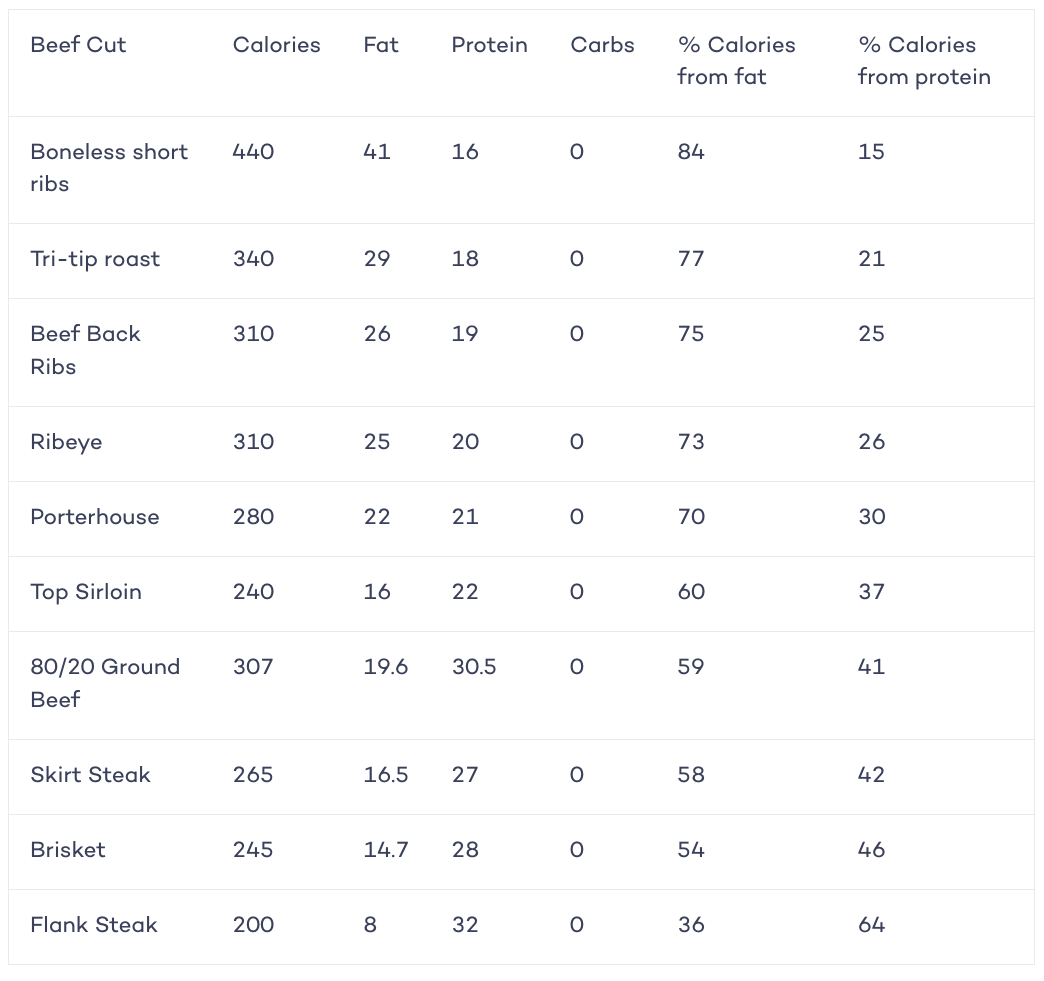

A standard keto shopping list includes all of the meats, seafood, and dairy as a keto carnivore grocery list, with the addition of low-carb fruits, veggies, nuts, and seeds.
As noted above, these additions can be detrimental due to the presence of plant toxins, antinutrients, PUFAs, and excess fiber. So even though they make the shopping list, if you choose to consume then, do so in moderation.
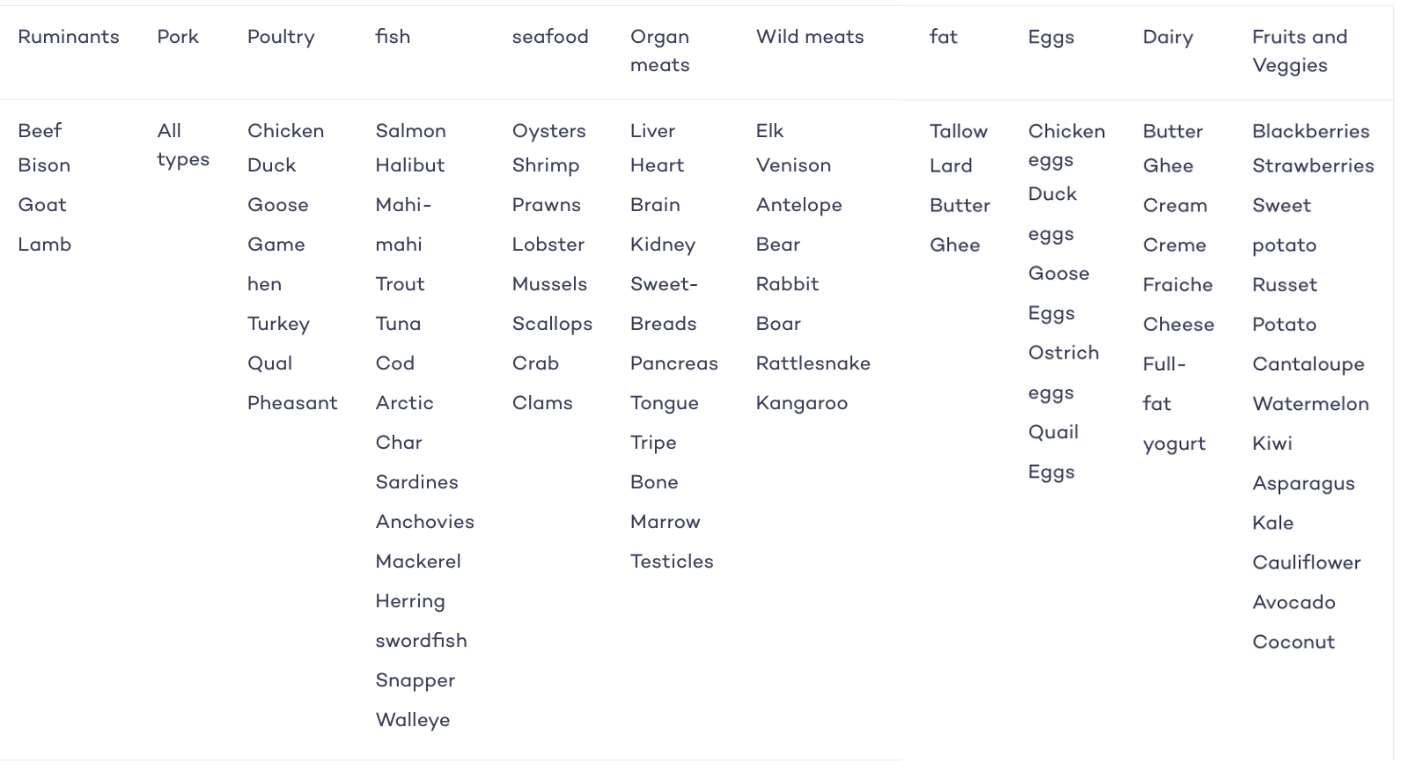
Keto calls for at least 70% of your calories from fat. For many people coming from a low-fat paradigm, this can feel like a challenge.
Most people need to augment their meals with healthy keto fats.
8 of the healthiest fats on your keto shopping list are:
Tallow flies under the radar of most keto shoppers. It contains anti-inflammatory conjugated linoleic acid and provides vitamins A, D, E, K, and B1.
Ghee–a clarified butter–provides vitamins K, A, and E. One of the major benefits of ghee is that it is lactose-and casein-free for people with allergies, and it has a very high smoke point when used for cooking.
A recent study testing 22 brands of domestic and imported olive oil found that 82% were adulterated and rancid. Some brands were 100% soybean oil! Another reason why it’s best to stick with whole animal fats–vegetable oils are highly processed industrial products subject to various ethical problems [1].
If you’re still deprogramming yourself from the cult of low-fat dieting, numerous recent high-quality studies are confirming the health benefits of fat:

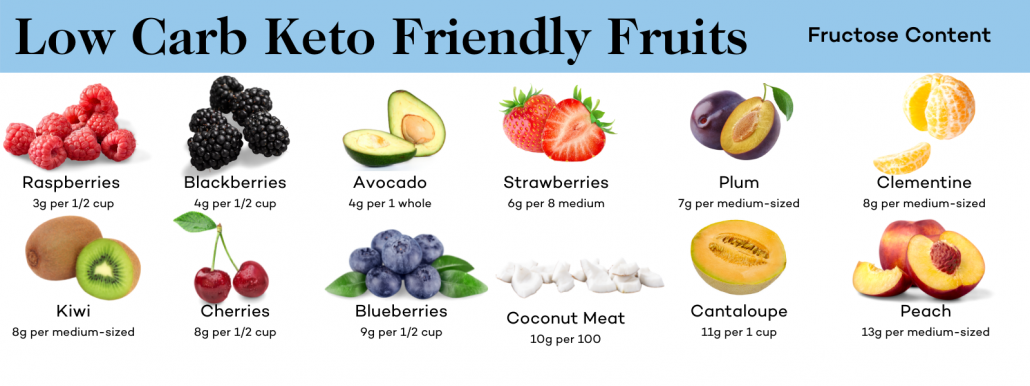
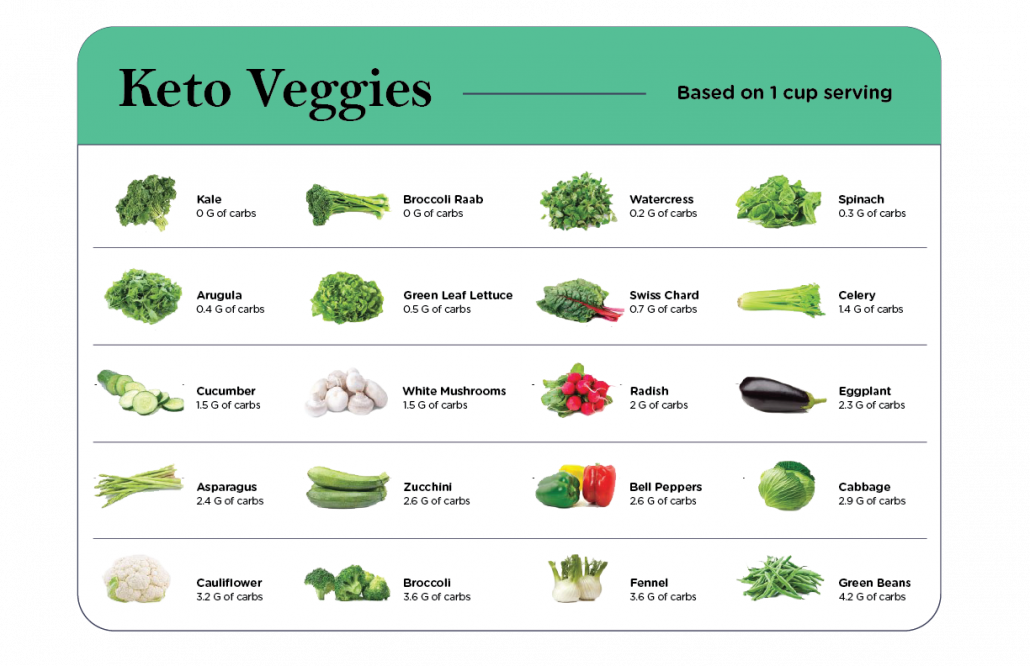
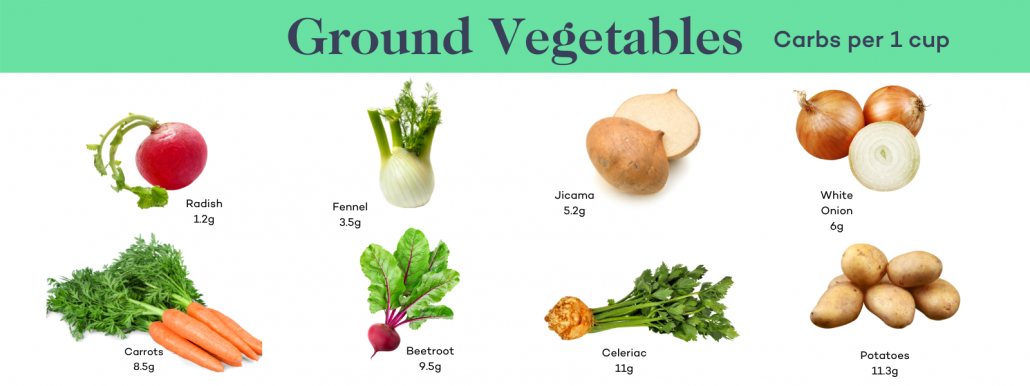
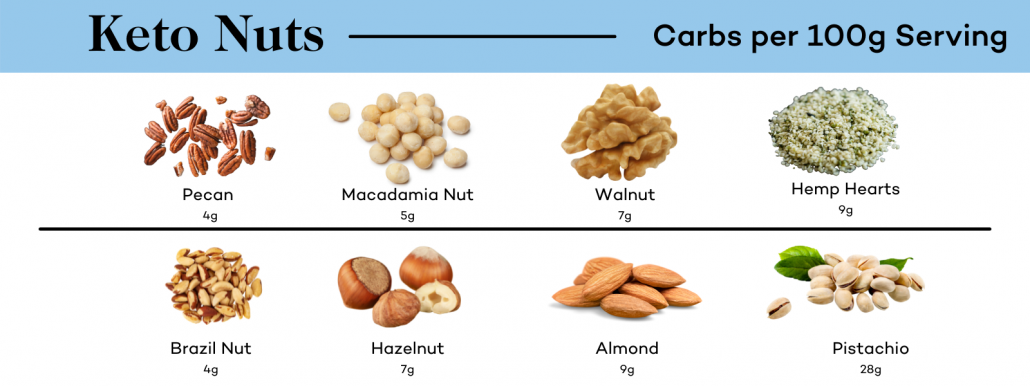
Keto nuts and seeds are high in fat, protein, vitamins, and some minerals, but they have their drawbacks.
They are very high in abrasive fiber, can expose you to high concentrations of antinutrients, and are very high in inflammatory omega-6 fatty acids.
Humans evolved on an Omega-6 to 3 ratio around 1:1. When eating a standard American diet, loaded with seed and vegetable oils, the ratio is closer to 1:16. This imbalance of omega-6’s can contribute to chronic inflammation, cancer, and heart disease.
Most store-bought and restaurant condiments and sauces are loaded with inflammatory vegetable oils and sugars.
However, it is possible to find or make keto options for many of the most popular condiments, including:
Check out our guide to recipes and store-bought keto sauces and condiments here.
A keto shopping list calls for high-fat, low-carb, and moderate-protein foods.
At the top of an ultimate keto grocery list are ruminant meats from cows, bison, and lamb. Support these keto all-stars with, whole-food animal fats, pork, fatty fish, and seafood. Many keto dieters stop there, while others add in moderate amounts of nuts, seeds, low-carb veggies, and fruits.



We’re a global community of seekers, healers, and doers committed to reclaiming health on our own terms. When you join the Kiltz Mighty Tribe (KMT), you’ll gain access to education, support, and collective wisdom.

